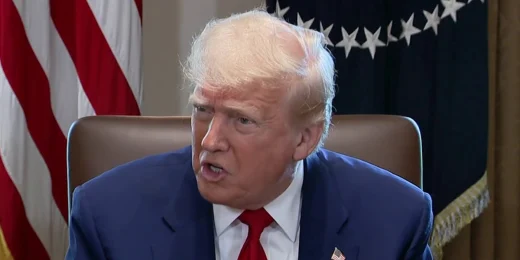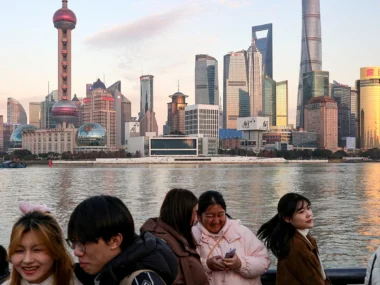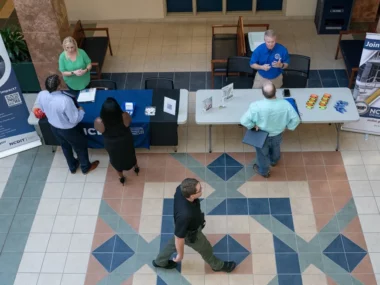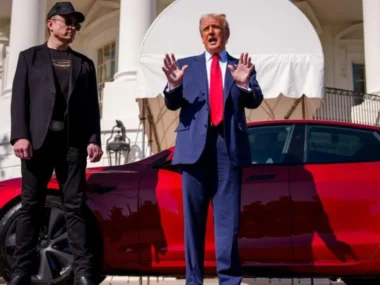In an interview on NBC’s Meet the Press with Kristen Welker, former President Donald Trump described the U.S. economy as a blend of his own policies and those of President Biden. He stated that the positive aspects reflect the “Trump economy,” while the negative elements are the result of Biden’s leadership, which he criticized as poor.
A recent CNN/SSRS poll revealed that two-thirds of Americans are either fearful or pessimistic about the current economic climate. Only a third express optimism or enthusiasm, and nearly 70% believe a recession is at least somewhat likely within the next year.
Trump claimed credit for reducing costs, though he acknowledged it takes time to see the effects. However, grocery prices rose 2.41% year-over-year in March 2025—the fastest rate since August 2023.
When asked if he takes responsibility for recent stock market instability following his tariff announcements, Trump noted the market had recently seen several days of gains and argued the tariffs were just beginning to take effect. Despite a 6% overall decline in the S&P 500 since his term began, the index had one of its best days in years on April 9 after Trump temporarily paused most tariffs.
Trump downplayed recent market drops, likening the economic strategy to taking necessary “medicine” for long-term health. Still, he has not addressed growing concerns over the lasting impact of his economic policies, including sweeping tariffs like the 145% levy on Chinese imports and a universal 10% tariff during a 90-day pause on others.
Asked whether tariffs could become permanent, Trump responded that removing that possibility might discourage companies from investing in U.S. production. While he has granted concessions to large firms—especially automakers—by delaying some tariffs and offering reimbursements, he declined support for small businesses, saying they wouldn’t require it.
Trump on a Potential Recession: “Nothing is Off the Table.”
Trump claimed he “takes responsibility for everything” and said tariffs would make the U.S. wealthier, describing the country as on track to become “very rich.”
However, worries over tariffs have fueled fears of a recession. In April, JPMorgan raised the recession risk to 60%, up from 40%, while Goldman Sachs estimated a 45% chance.
In an interview with Welker, Trump assured that “everything’s OK,” framing current economic conditions as a “transition period” and expressing optimism. Although he denied being concerned about a recession, he admitted that “anything can happen” when pressed.
When questioned about higher consumer prices from tariffs, Trump suggested Americans might need to scale back purchases. He remarked that a child “doesn’t need 30 dolls,” implying a few would suffice, blaming past trade practices with China.
Trump has also continued to criticize Federal Reserve Chair Jerome Powell, blaming him for not cutting interest rates fast enough and recently calling him “a major loser.” This sparked speculation over whether Trump might try to remove Powell before his term ends in 2026, though Trump stated he has “no intention of firing” him.
In the interview, Trump reaffirmed he wouldn’t dismiss Powell, noting that he would “get to change him very quickly anyway.” Powell, supported by most legal experts, has maintained that the law doesn’t allow a president to remove a Fed chair except in rare, extreme cases.











